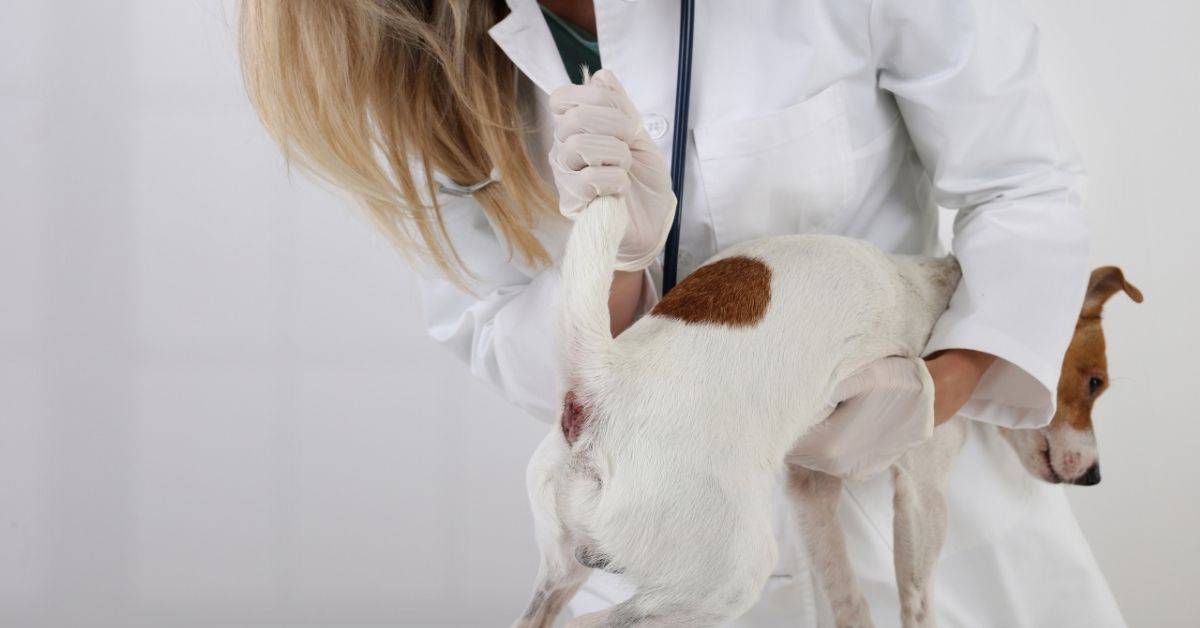Do you have a dog with a destructive dog anal gland smell?
If so, you’re not alone.
That is a common problem for dog owners, but it can also be easily fixed.
This article will discuss ways to get rid of dog anal glands’ smell.
Some of these methods are simple and easy, while others require more time and effort.
But no matter what approach you take, we promise your dog will start smelling better in no time!
How To Get Rid Of Dog Gland Smell
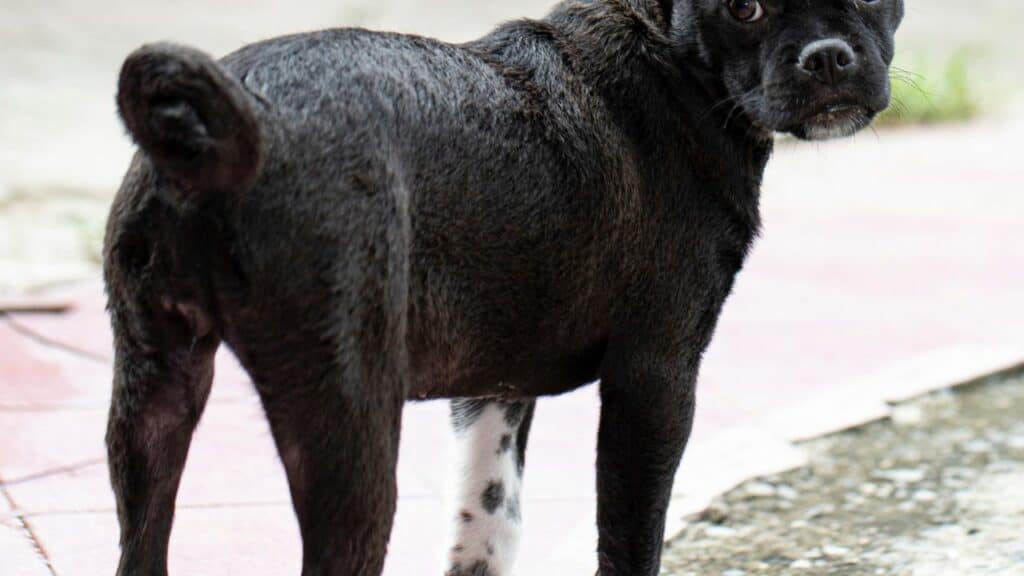
Express Dog Anal Glands At Home
Expressing dog anal glands at home is a safe and effective way to eliminate the unpleasant dog anal gland smell.
While professionals best do it, you can easily do this at home with guidance and a few household tools.
When anal gland secretions are not regularly expressed, they may become impacted or infected.
That can result in discomfort and an even more pungent smell.
To express dog anal glands, you’ll need:
· warm water
· a towel
· cotton balls (optional)
· baby oil (optional)
· sterilized gloves for protection
By appropriately expressing your dog’s anal glands, the foul odor associated with them should be gone in no time!
The process isn’t too complicated but should be done carefully.
Firstly, you must identify the anal glands, which are located just inside the anal opening of your dog, on either side.
When comfortable with their location, wear gloves and use a tissue or cloth to gently lift the fur around the anus away.
Then, use only one finger and press firmly but not too hard against each anal gland.
Move your finger around in a circular motion while squeezing as you go.
That will express the anal glands and release any built-up fluid within.
Make sure to clean away any residue with warm water and cotton wool after expressing both anal glands for the best effect.
Follow these steps regularly for optimum anal gland health!
Use Pet Wipes For Dog Anal Glands To Eliminate The Dog Gland Smell
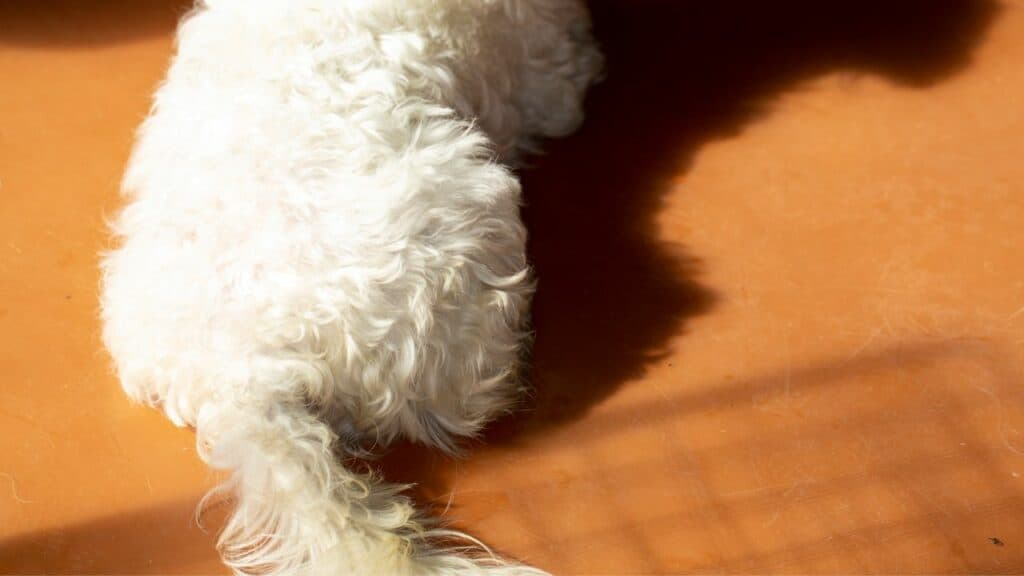
Pet wipes are an effective and easy way to help keep your dog’s anal glands in check.
That will significantly reduce the nasty dog anal gland smell that can sometimes linger around our beloved pets.
Anal glands are located on each side of your pup’s rectum and work by secreting pheromones with an unmistakable odor.
To adequately express anal glands and avoid unpleasant smells, you can use pet wipes to clean them.
Wipes offer a safe and gentle cleansing process for you and your pup.
The act of wiping away unwanted odor encourages proper anal gland expression too!
By regularly using pet wipes designed for anal gland cleaning, you’ll be able to diminish anal gland odors while providing comfort and relief to your furry friend.
Give Your Dog A “Butt Bath” To Eliminate The Dog Gland Smell
Giving your dog a butt bath may sound strange, but it’s an effective way to eliminate the pungent smell of anal glands.
If your pup is prone to anal gland problems coming with dog anal gland smell, giving them a butt bath can help reduce inflammation and clear out anal glands, so they don’t have to be expressed manually.
All you need is some warm water and gentle soap or shampoo for the job.
Gently massage around the anal region with wet hands or a soft cloth to remove any debris or blockages that could be causing discomfort or irritation.
Additionally, this method won’t cause any distress to your dog since no tools like probes are involved!
It’s easy to get rid of dog anal gland smell.
Visit The Vet To Get Rid Of The Dog Glands Smell.
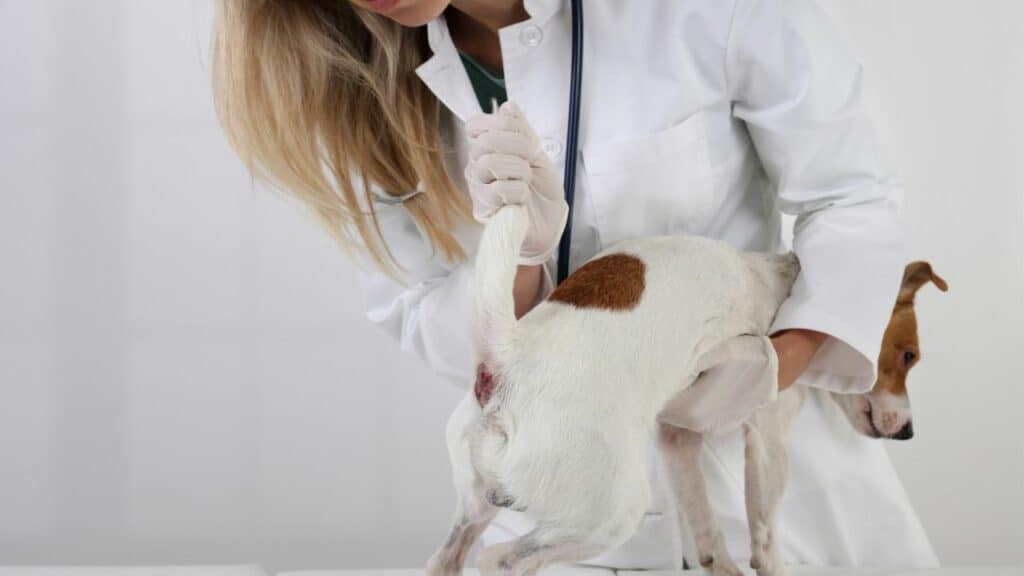
Fortunately, a quick trip to the vet is usually all that’s needed to get rid of the anal gland smell and make sure your pup smells as sweet as ever.
Your vet will likely recommend expressing anal glands externally, which will help keep them healthy while minimizing discomfort and foul odor.
Consider Having The Dog’s Anal Glands Removed
It can be a tough decision, but if anal gland issues are causing your dog much distress and becoming a regular recurrence, you may consider having the anal glands removed.
Anal glands are two tiny sacs located around the rectum that produce scents unique to your
This procedure is relatively simple, and while there will be some healing time involved, it ultimately means never worrying about anal glands again.
How To Prevent The Dog Anal Gland Smell
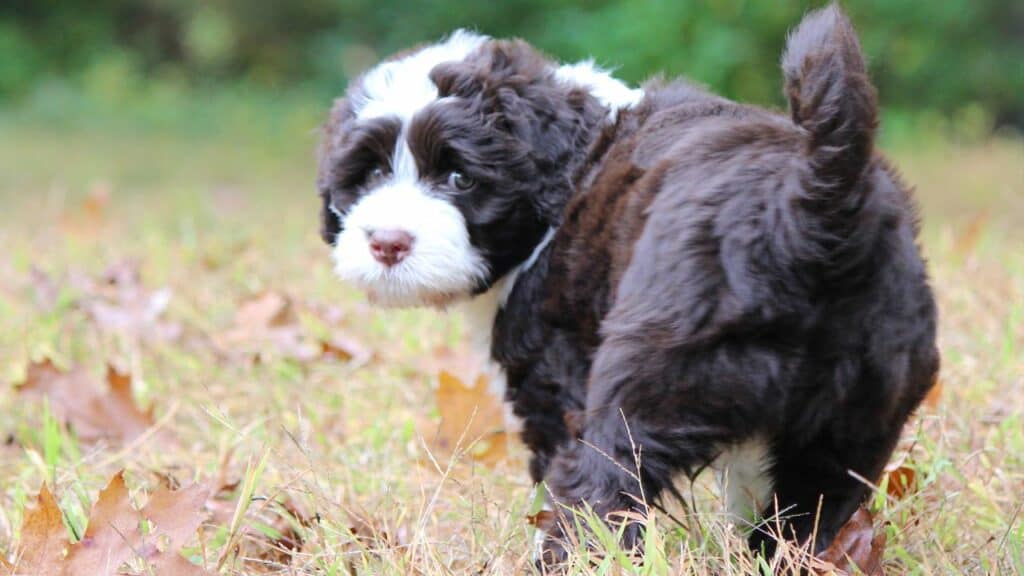
Keeping your dog’s anal sacs healthy reduces anal gland smell.
It’s essential to pay attention to their diet, as it helps with their digestive system and can help prevent anal gland problems in the first place.
Making sure they get the proper nutrients, vitamins, and minerals can go a long way in controlling dog anal gland smell.
Regular anal gland expression by a vet or groomer is recommended – perhaps every six weeks.
To ensure that nothing is wrong, if inflammation or infection happens, it can lead to odor-causing issues.
Furthermore, ensure you’re regularly exercising your dog, paying close attention to their bathroom habits.
The general cleanliness of their anal area will help alleviate any anal gland odor from developing.
Why Do Dogs Have Anal Glands?
Dogs have anal glands, also known as scent glands or anal sacs, located between their anal opening and the tailbone.
These anal glands produce an odor-bearing liquid to mark territory and create a unique scent signature for each dog.
Though anal glands can cause discomfort by becoming impacted or infected, they serve many vital functions.
For example, anal gland secretions help dogs communicate with each other and alert predators of their presence.
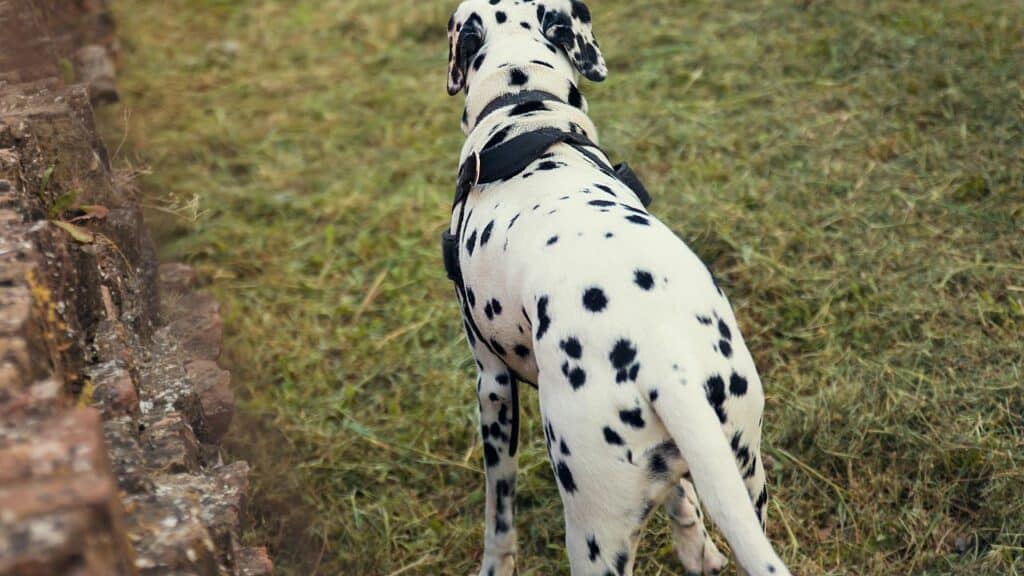
In addition, these secretions may contain hormones or enzymes which can provide clues about a particular dog’s gender or status within its pack.
All in all, anal glands may be unpleasant, but they serve an essential purpose in a dog’s life!
Symptoms Of Impacted Anal Glands
Anal glands, located close to the anal opening of dogs and cats, may become impacted when there is an accumulation of secretions.
If your furry friend begins showing sure physical signs that suggest anal gland problems, be aware of the following things:
· redness and swelling near the anal area
· bloody or pus discharge from anal glands
· scooting, chewing, or licking at the anal region excessively
Additional warning signs may include reduced appetite, weight loss, and a fever.
In any case, taking your pet to the vet is recommended if you notice any of these symptoms – they can quickly diagnose and provide appropriate treatment for anal gland issues.
Why Does My Dog Still Smell After Glands Are Expressed?
It’s not uncommon for dogs to still have an odor even after anal gland expression.
These anal glands, found on either side of the anal opening, secrete a brownish-yellow liquid containing total bacteria and other microbes specific to each dog.
The odor can occur due to infection or a blockage of these anal glands.
Additionally, certain medical conditions, such as allergies or overproduction of sebum, can also cause strong odors in dogs.
So while anal gland expression will help reduce odor, it may not permanently eliminate it.
To tackle any additional odor issues, it’s best to speak with your veterinarian to discuss available options and treatments.
How Do You Know If Your Dog Needs His Glands Squeezed?

Knowing when your dog needs the dog anal glands squeezed is not always straightforward.
If your pup’s tail tucks or if they drag behind on the ground, it can signify that the anal glands need to be emptied.
Additionally, if your pup has a solid and persistent fishy smell, it may come from these anal sacs.
Other signs of anal sac disease include scooting, restlessness, and licking at the anal area more frequently than usual.
It’s essential to keep an eye out for any such behaviors and act quickly if needed to ensure your pup’s anal glands are healthy and functioning correctly.
Before You Go…
Now you know how to get rid of dog gland smell.
If you want to learn more, read the following articles too!

